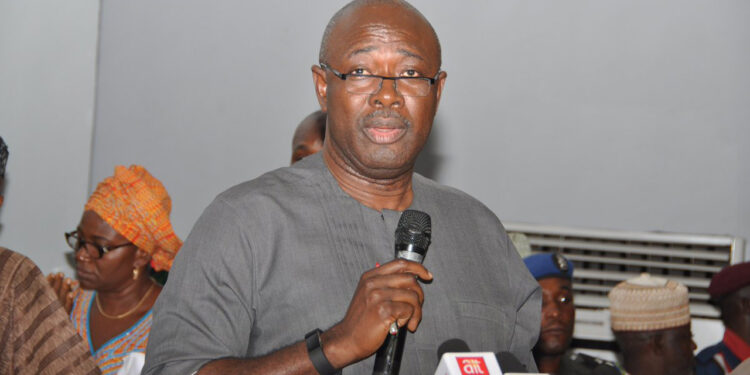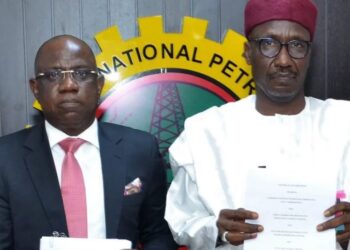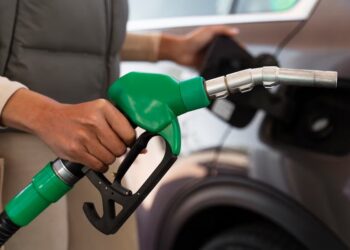Senator Heineken Lokpobiri, the Minister of State for Petroleum (Oil), has observed that the Nigerian National Petroleum Corporation (NNPC) Limited need to sell imported fuel above landing cost to combat smuggling.
The minister made this statement at the 2024 Energy and Labour summit in Abuja, where he also pointed fingers at security agencies for their complicity in aid of smuggling activities.
He mentioned that smugglers will continue to thrive as long as NNPC imports fuel and sells it below the landing cost.
“If NNPC imports PMS and sells to marketers at perhaps N600 or below, there’s no way that smuggling can stop.
“When smugglers are taking the products outside the country, even if you put all the policemen on the road, they are Nigerians; you and I know the answer (response),” he said.
More Insights
Furthermore, Lokpobiri acknowledged that fuel smuggling from Nigeria to neighboring countries is a persistent issue that cannot be fully eliminated.
He also explained that the NNPC lacks the financial resources needed to rebuild the nation’s aging pipelines, which have been a significant factor in economic sabotage through vandalism and crude oil theft, draining vital oil revenue.
He mentioned that “the old, corroded pipelines, some of which date back to the 1960s and 1970s, are easily vandalized,” thus facilitating the illegal transport of fuel.
“The reason why pipeline vandalism is very easy to do is because the pipelines have all expired; they are completely corroded. So, anybody can just go and tap it, and the thing is busted.
“The challenge lies in transporting it to terminals due to the deteriorated state of the pipelines.”
In addition, Lokpobiri called for a public-private partnership to address the infrastructure issues.
“That is why we have to go for the global model – PPP. We have to get the private sector to come in.”
What you should know
Nigeria has struggled to meet its oil production targets in the first five months of the year.
The country aimed to produce 1.78 million barrels of crude oil per day, but the Organization of Petroleum Exporting Countries and its allies (OPEC+) set a lower production quota of 1.5 million barrels per day in December, which was 288,000 barrels below the budget target.
In January, OPEC figures revealed that Nigeria’s average crude oil production was 1.42 million barrels per day, falling short of both the OPEC quota and the budget target.
This figure dropped to 1.32 million barrels per day in February and further declined to 1.23 million barrels per day, according to direct communication figures from OPEC.
Throughout the first quarter of the year, Nigeria, much like in 2023, failed to meet the OPEC+ production quota and the 2024 budget production target. The average production barely reached 1.4 million barrels per day.























